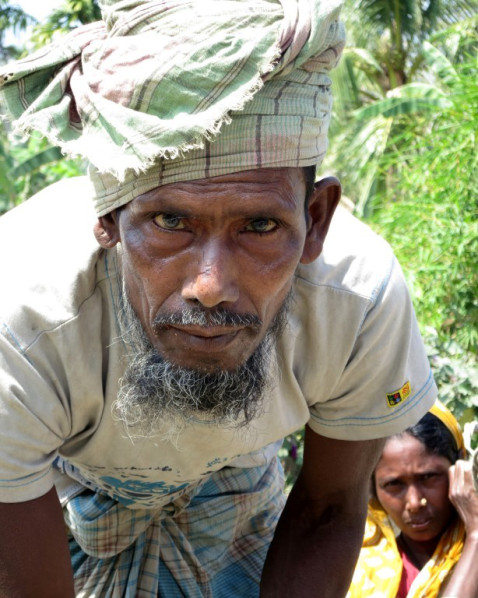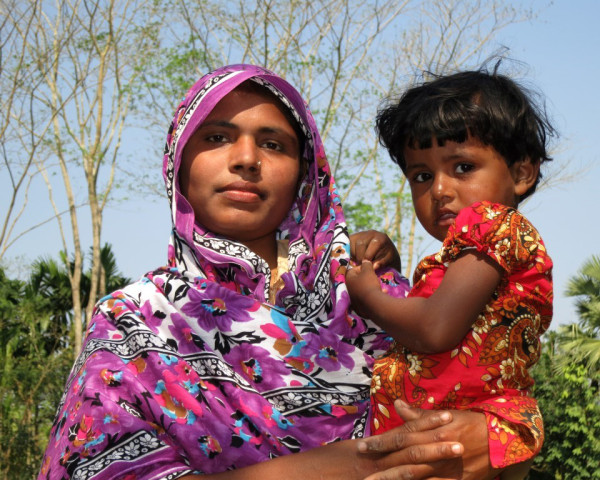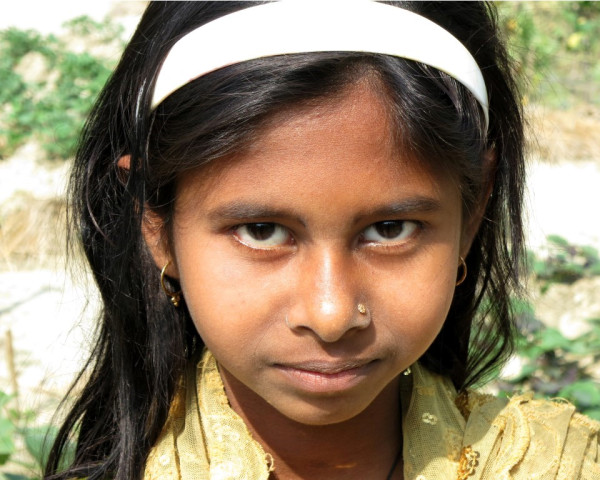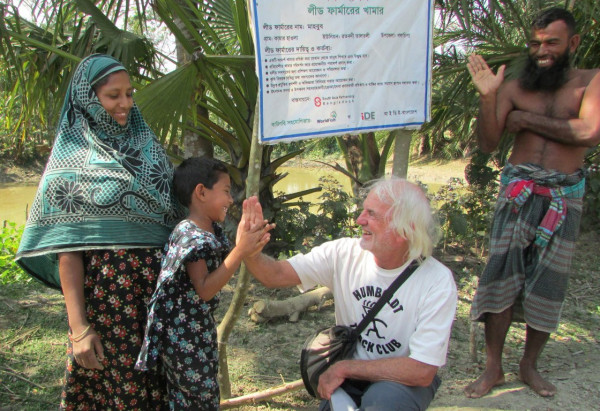
Volunteer Post
The Assignment Looked Like it Was Written Specifically for Me
Barry Evans, F2F Volunteer
This week’s blog post comes from volunteer Barry Evans, who completed his Farmer-to-Farmer assignment in Bangladesh last month:
The assignment looked like it was written specifically for me: engineering background combined with writing and photography skills. Oh, and it would help to know how to create illustrated documents. I immediately emailed Vickie at Winrock to see if the posting was still open. It was, and within a few days the “job” for local host, Save the Children, was mine. I flew to Dhaka the third week of February 2014 to spend a month in Bangladesh.
Nearly surrounded by India, Bangladesh is one of the world’s most densely populated countries, home to 160 million people in an area one-third the size of California. Barisal “division” (equivalent to a state), where I was working, is a low-lying delta, prone to annual flooding and at risk from cyclones. Save the Children’s long-term goal in this area is to improve the standard of living of mostly agricultural people by reducing their susceptibility to disasters and increasing their crop yields.
One of Save the Children’s more innovative programs in Barisal division is a five-year scheme called “Nobo Jibon,” or “New Life.” It consists of two parts: providing manual work to extremely poor villagers (giving preference to women) who are paid in the form of foodstuffs; and reshaping the land, that is, raising it, to enhance crop yields and improve access roads. (In the process, the holes from which the fill material is dug form aquaculture ponds.) My assignment was to document some of the many (many!–367 in the period from January to April 2014 alone) schemes and to create an illustrated booklet to showcase the program. The booklet was to be a concise, non-technical, graphically-rich summary to emphasize what could be done with limited funds to benefit huge numbers of poor rural individuals, households and communities.
I’ve never worked so hard in my life! My tentative schedule called for me to spend my first week in Barisal city, in the heart of the Brahmaputra-Ganges delta south of Dhaka, researching and planning visits to remote villages for the second and third weeks. By day-two, I decided with my fellow Save the Children engineer in charge of the schemes that research was for the birds: I needed to see what was going on, not read about it! Off we went to see roads being improved and crop fields being raised. This involved, each way, an hour of travel by launch (comfortable) plus another hour of back-of-a-motorbike (not). All the work was done by hand, and mostly with female labor (toughest women I’ve ever met).
That day set the tone for my assignment: field visits (usually involving long travel times), photographing and interviewing workers and farmers, reading up on the successes and failures of the program, and documenting it all. Four weeks, a thousand photographs, dozens of interviews and thirty pages later, my assignment was finished. I was able to leave my hosts (dedicated, knowledgeable, courteous to a man and woman) with what we’d only vaguely pictured a month previously, a booklet that summed up the program: five minutes spent reading the summary and flipping through the pictures will give anyone a grasp of the overview.
I felt totally safe and taken care of every step of the way. In Dhaka I had access to Winrock’s office (just a minute’s walk from my hotel), and they made me feel at home from the moment I was met at the airport, making sure I had everything I needed so I could focus completely on the assignment. Would I go again? In a flash, especially to another country where whatever talents and knowledge I may have could be useful.
Here are just a few of the gorgeous photos that Barry took while in country:




